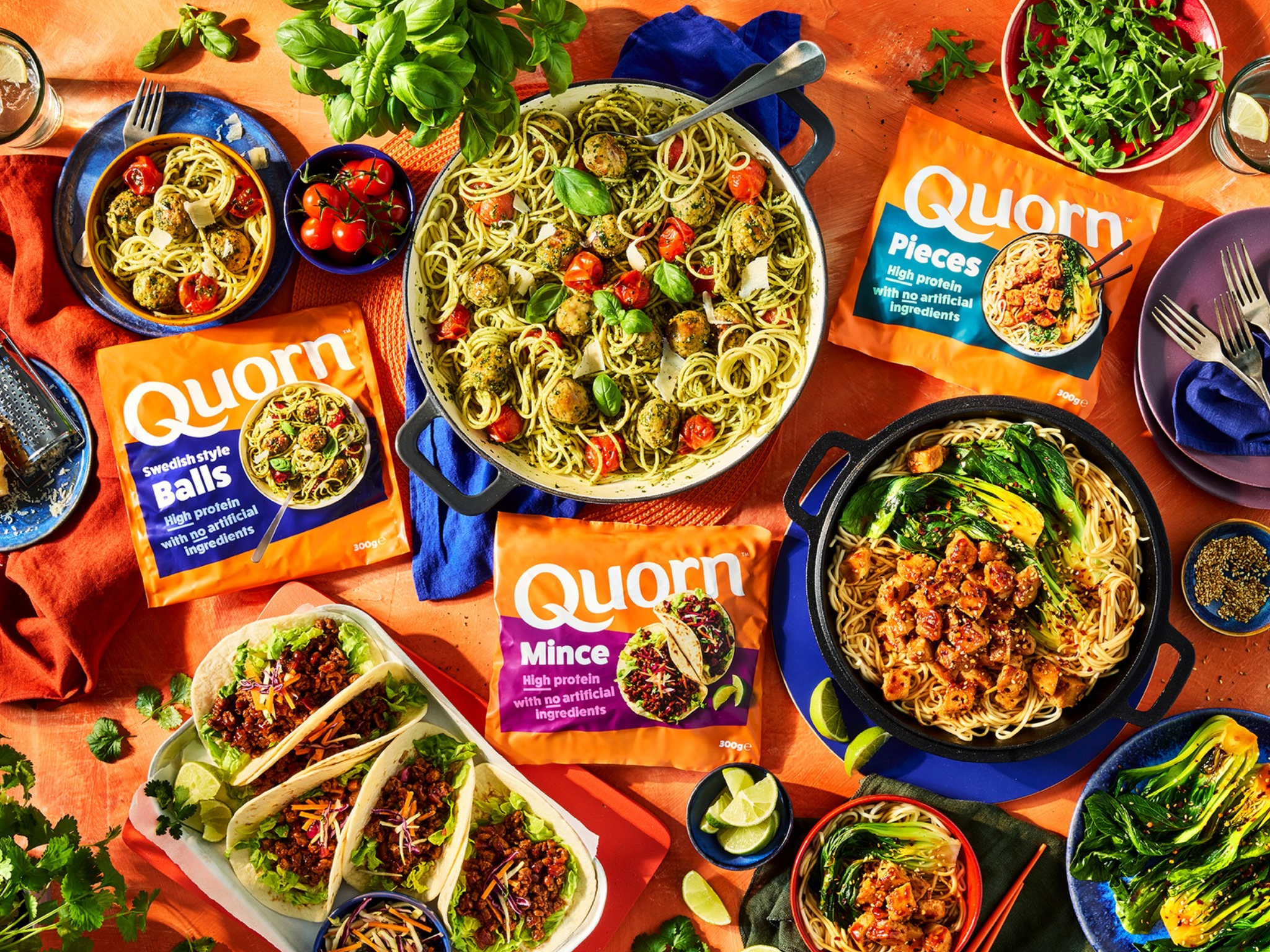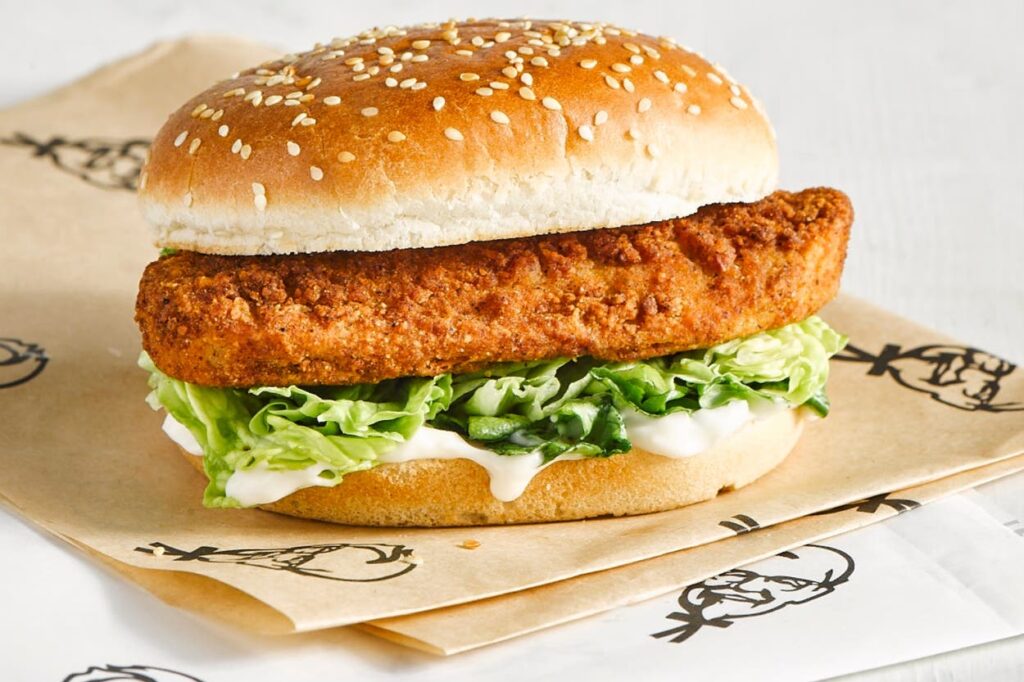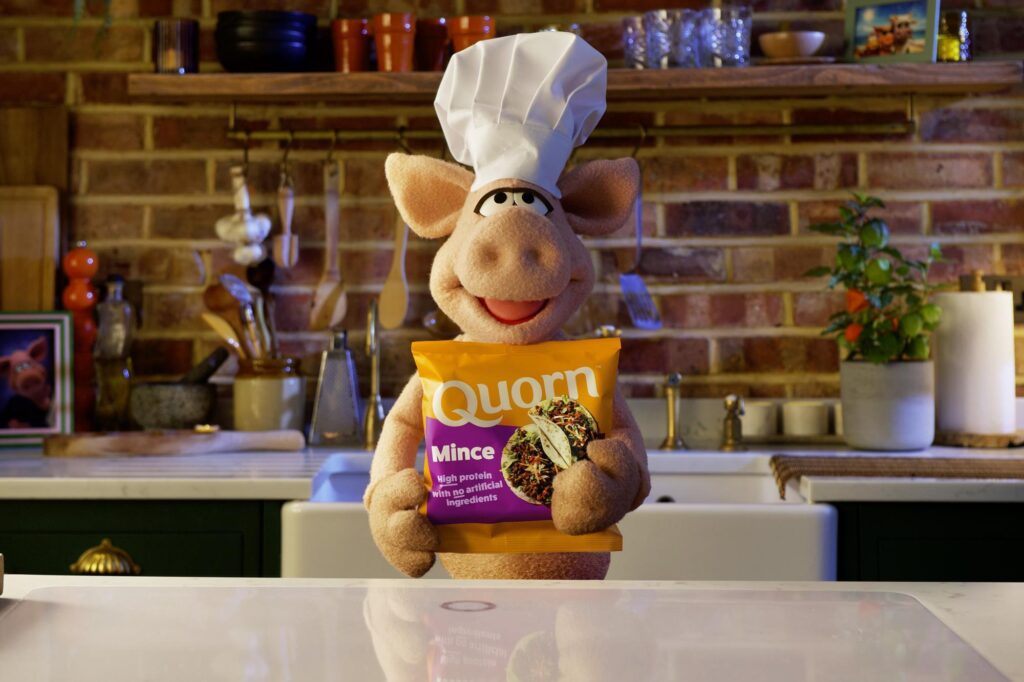
Quorn parent Marlow Foods has recorded a 9% decline in sales amid weakening demand in the UK and US, but nearly halved its losses in 2024, with its foodservice offering a bright spot.
One of the world’s largest and foremost meat-free companies is continuing to face the pressures of weakening consumer demand for alternative proteins.
Marlow Foods, the Monde Nissin-owned parent company of Quorn and Cauldron Foods, saw sales fall by 9% to £187M in 2024. This was driven by an 11% decline in the retail space, where the company remains the market leader with a 32% share.
The company ascribed the performance to “a continued decline in the meat-free retail category in the UK and US markets, driven by the cost-of-living crisis”.
At the same time, it saw positive results in the foodservice category (albeit from a much smaller base), and brought overall annual post-tax losses down from £50.7M to £27.9M, a near-45% drop. That said, the company has now lost over £100M in the last three years.
“2024 was a challenging year, but our focus is firmly on the future,” said Marlow Foods CEO Nick Cooper. “We’re encouraged by the early signs of progress in executing our Transform to Win Together plan, and we are excited to be the brand to bring fresh innovation and energy back into the category. With the backing of our owners, we’re confident in the path ahead.”
KFC and Greggs partnerships give Quorn a boost

Though retail makes up over 80% of Marlow Foods’s revenue, it benefited from several partnerships on the restaurant front. Its QSR sales were up by 3% to £6M, with growth coming from KFC in Europe and successful campaigns with Greggs in the UK.
The group’s foodservice sales rose by 2.5%, reaching £28.6M, building on the progress of its newly launched QuornPro division. Likewise, the Marlow Ingredients brand for B2B customers saw revenues hit £400,000, a 33% jump from 2023.
“The numbers highlight the well-documented pressures in the UK meat-free category,” said Cooper. “But there were bright spots: growth in foodservice, a significant reduction in pre-tax losses to £28M (from £63M in 2023), and strong cash generation of almost £13M thanks to supply chain efficiencies.”
He added that the loss figure included £12M of one-off costs tied to the start of the turnaround, leaving a £16M underlying pre-tax loss, an improvement on 2023. “Support from our parent Monde Nissin further bolstered the balance sheet, with £27M of funding used to cut debt,” noted Cooper.
The results, which largely predate the arrival of current CEO David Flochel, show that Marlow Foods’ annual underlying gross profit was 7% lower in 2024, largely due to lower sales volumes. However, supply chain cost control offset the impact of lower production volumes, increasing the underlying gross margin from 0.3% in 2023 to 21% in 2024.
Moreover, Quorn magnified its focus on its cash on hand, which increased by 21% to reach nearly £21M. “This performance was driven by a reduction in inventories and reduced supply chain cycle times while preserving high customer service levels,” the company wrote in its financial filing.
Marlow Foods is already seeing a momentum shift in 2025

Quorn and Cauldron’s performance mirrors the wider challenges faced by the meat-free sector in the UK and the US, where sales fell by 10% and 7%, respectively, in 2024.
In response, Marlow Foods initiated the aforementioned Transform to Win Together plan. Over the next two years, the programme will aim to increase operating agility and cost efficiency, return the business to profitability, and generate funds for future growth.
The initiative saw the company restructure its UK operations, streamlining commercial and R&D, as well as preserving key innovation and customer-facing capabilities. Moreover, it kick-started an effort to make its supply chain more efficient and flexible via upskilling of teams and improved flow between locations.
According to Cooper, Quorn and Cauldron are already witnessing a momentum shift this year. The decline in sales has slowed, with the company recording a 6% decrease in Q1 and a 5% decrease in Q2. Meanwhile, it has gained further market share by 1.6 percentage points in the UK.
“Underlying losses have narrowed, and core EBITDA was positive in [the first half of 2025], supported by further efficiency gains, and an additional £18M capital has been injected from Monde Nissin,” he said.
“As the UK’s number one meat-free brand, we are also stepping up our consumer engagement. 2025 has already seen a string of successful campaigns, from Meals in Minutes in January to summer’s Mission Snack Swap, which drove double-digit growth of our Quorn snacking range,” he added.
“New-look Quorn Mince and Pieces, now free from artificial ingredients, also hit shelves in September, and our biggest frozen campaign in more than four years kicks off in October. We’re embarking on a ten-week mission, which includes TV, VOD, social, influencers, podcasts and PR set to reach millions of consumers.
“We’ll also be dishing up our biggest-ever shopper marketing campaign in over 1,500 supermarkets in the UK, reaching shoppers at up to eight different touchpoints on their path to purchase.”
Marlow Foods will hope that the marketing drive and restructured operations can further narrow losses and gain new consumers in a fast-moving alternative protein landscape.
The post Quorn Owner Posts 9% Sales Decline, But Cuts Losses by 45% Amid Foodservice Success appeared first on Green Queen.
This post was originally published on Green Queen.